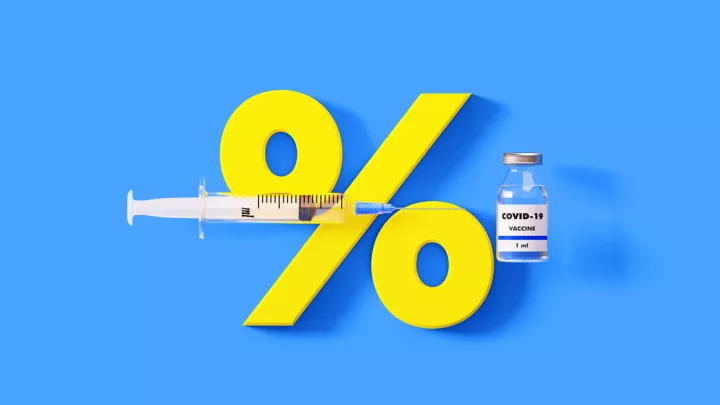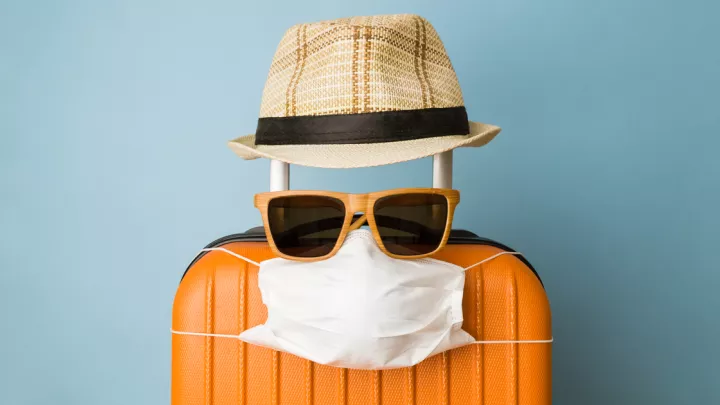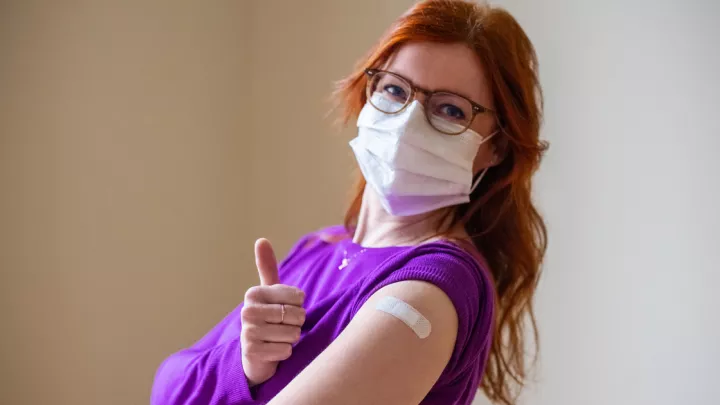Why vaccination is our best shot against variants

We are in a race between vaccines and variants.
To end this pandemic, a large percentage of the population needs to either be vaccinated or gain immunity through infection with the virus. The second is a much deadlier and needlessly severe option. Which is why vaccination remains our best shot for herd immunity – and protection against variants.
COVID-19 vaccines protect against variants
"The number of cases and the number of variants are rising around the state," says infectious diseases expert Mark Rupp, MD. "In many places throughout the country, they're seeing major outbreaks of the variants. It's absolutely imperative that we continue to vaccinate as broadly and quickly as we can with these proven, safe and effective vaccines. While at the same time, we continue the non-pharmacologic interventions – the distancing, masks and avoiding those high-risk situations. If we do those things together, we're going to have a much better, safer summer."
In the United States, there are over 20,000 cases of the B.1.1.7 variant. Both the P.1 variant and the B.1.351 variants were reported in the U.S. at the end of January.
If the virus keeps circulating unchecked, mutations will continue to be introduced. This could potentially introduce new strains that resist the vaccines we have now. It would be much better to eliminate COVID-19 from the population through herd immunity than to have the virus continuing to spread in unvaccinated people.
Your vaccine protects you
On an individual level, research shows that vaccines are safer than natural infection. Many COVID-19 long-haulers experience post-COVID syndrome for months. Even if you survive COVID-19, you may experience lasting damage to your brain, heart or lungs.
"We clearly know the risk with COVID-19," says Dr. Rupp. "Well over half a million people in our country died this past year due to COVID-19. Clearly, this is a dangerous disease that even in young, healthy people can cause severe disease or lingering symptoms that can go on for months."
"Even if these rare thrombotic events prove to be associated with the Johnson & Johnson vaccine, they're on the order of one per million right now," continues Dr. Rupp. We may need to re-focus the J&J vaccine in order to avoid or minimize rare adverse events in certain higher risk populations.
We will continue to monitor the COVID-19 vaccines for adverse effects. The mRNA vaccines (Pfizer & Moderna) have been given to tens of millions of Americans and have been demonstrated to be highly effective and very safe.
COVID-19 vaccines cons:
- Side effects like a sore arm, fevers, muscle aches, fatigue
- Extremely rare blood clots may or may not be associated with Johnson & Johnson vaccine. The FDA and CDC are carefully evaluating and further guidance is pending
COVID-19 vaccines pros:
- Near 100% protection from hospitalization and death from COVID-19
- Control of a lethal pandemic
It's that last point – control of a lethal pandemic – that also affects everyone else in our community and country.
Your vaccine protects others
It's not enough to just vaccinate those who are at high risk for severe COVID-19. Herd immunity provides indirect protection to individuals who aren't immune, including those who can't receive the vaccine and those who are immunocompromised and potentially unable to mount a strong immune response to the vaccine.
With enough people immune to infection, the chain of transmission stops.
For herd immunity to take hold, it may require 60% to over 80% of the entire population to be immune through infection or vaccination. Vaccines are a much safer way to get to herd immunity than through natural infection. We encourage you to get an authorized COVID-19 vaccine as soon as it's offered to you.
Is there something you want to know about COVID-19? See our COVID-19 articles or ask us a new question here.
• Does vaccine herd immunity work?
• Do I need the vaccine after getting COVID-19?
• Can I still spread COVID-19 after vaccination?







